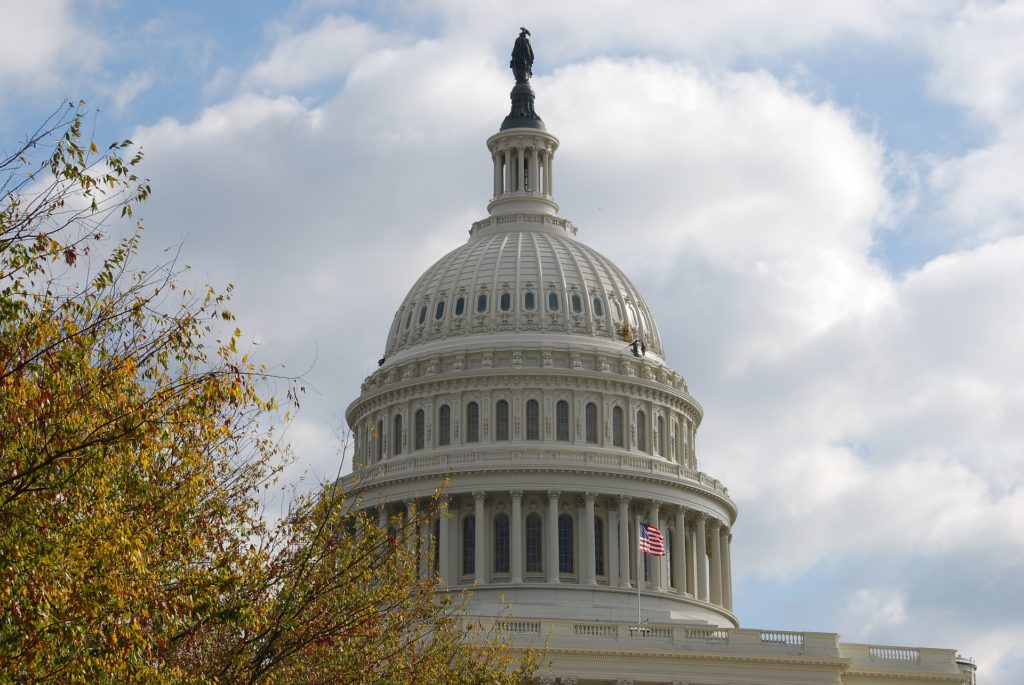- Calls to this hotline are currently being directed to Within Health, Fay or Eating Disorder Solutions
- Representatives are standing by 24/7 to help answer your questions
- All calls are confidential and HIPAA compliant
- There is no obligation or cost to call
- Eating Disorder Hope does not receive any commissions or fees dependent upon which provider you select
- Additional treatment providers are located on our directory or samhsa.gov
Congress Makes History by Passing First Eating Disorder Legislation

For the millions of Americans that are struggling with eating disorders around the country, December 7th, 2016 marked a day of hope and history. The United States congress passed the first major piece of mental health legislation aimed at specifically aiding those individuals with eating disorders in the form of the 21st Century Cures Act.
In this piece of federal legislation, eating disorders will be recognized, including anorexia, bulimia, and binge eating disorder. Measures included in the 21st Century Cures Act will make treatment more accessible for eating disorder sufferers as well as increase prevention efforts across the nation.
The Road to Becoming Law
As with all legislation, members of both the Senate and House of Representatives voted on passing the 21st Century Cures Act in the first step in the law-making process. The Senate voted 94 to 5 to approve the Act, which was also approved on the House of Representatives.
The approval by both chambers in congress allowed the legislation to pass to President Barack Obama’s desk, who then signed the 21st Century Cures Act into law on December 13th, 2016.
 This signing of the 21st Century Cures Act into law marks a tremendous victory for the thousands of individuals who not only suffer with eating disorders, but for the entire eating disorder community which has advocated tirelessly for improved recognition, awareness, prevention, and treatment measures.
This signing of the 21st Century Cures Act into law marks a tremendous victory for the thousands of individuals who not only suffer with eating disorders, but for the entire eating disorder community which has advocated tirelessly for improved recognition, awareness, prevention, and treatment measures.
While steps have been made to help improve accessibility to eating disorder treatment, such as through the Mental Health Parity Act, eating disorders have not been specifically recognized or addressed in legislation until the 21st Century Cures Act.Improving Accessibility to Treatment
Under the 21st Century Cures Act, individuals will have improved access to eating disorder treatment, which can cost over $30,000 per month for residential care alone. Insurance companies will also have less flexibility to deny coverage for eating disorder treatment that should technically already be provided through the parity law.
Prevention measures is also another important aspect of the 21st Century Cures Act, which includes education on eating disorders for both professionals and consumers. As early detection is an essential component of treatment and recovery, this will also help improve prognosis for eating disorder sufferers.
Community Discussion – Share Your Thoughts Here!
How can you become involved in advocacy efforts for the eating disorder community?
 About the Author: Crystal is a Masters-level Registered Dietitian Nutritionist (RDN) with a specialty focus in eating disorders, maternal/child health and wellness, and intuitive eating. Combining clinical experience with a love of social media and writing, Crystal serves as the Director of Content and Social Media for Eating Disorder Hope/Addiction Hope, where her passion to help others find recovery and healing is integrated into each part of her work.
About the Author: Crystal is a Masters-level Registered Dietitian Nutritionist (RDN) with a specialty focus in eating disorders, maternal/child health and wellness, and intuitive eating. Combining clinical experience with a love of social media and writing, Crystal serves as the Director of Content and Social Media for Eating Disorder Hope/Addiction Hope, where her passion to help others find recovery and healing is integrated into each part of her work.
As a Certified Intuitive Eating Counselor, Crystal has dedicated her career to helping others establish a healthy relationship with food and body through her work with EDH/AH and nutrition private practice.
The opinions and views of our guest contributors are shared to provide a broad perspective of eating disorders. These are not necessarily the views of Eating Disorder Hope, but an effort to offer discussion of various issues by different concerned individuals.
We at Eating Disorder Hope understand that eating disorders result from a combination of environmental and genetic factors. If you or a loved one are suffering from an eating disorder, please know that there is hope for you, and seek immediate professional help.
Last Updated & Reviewed By: Jacquelyn Ekern, MS, LPC on December 22, 2016
Published on EatingDisorderHope.com

The EatingDisorderHope.com editorial team comprises experienced writers, editors, and medical reviewers specializing in eating disorders, treatment, and mental and behavioral health.

